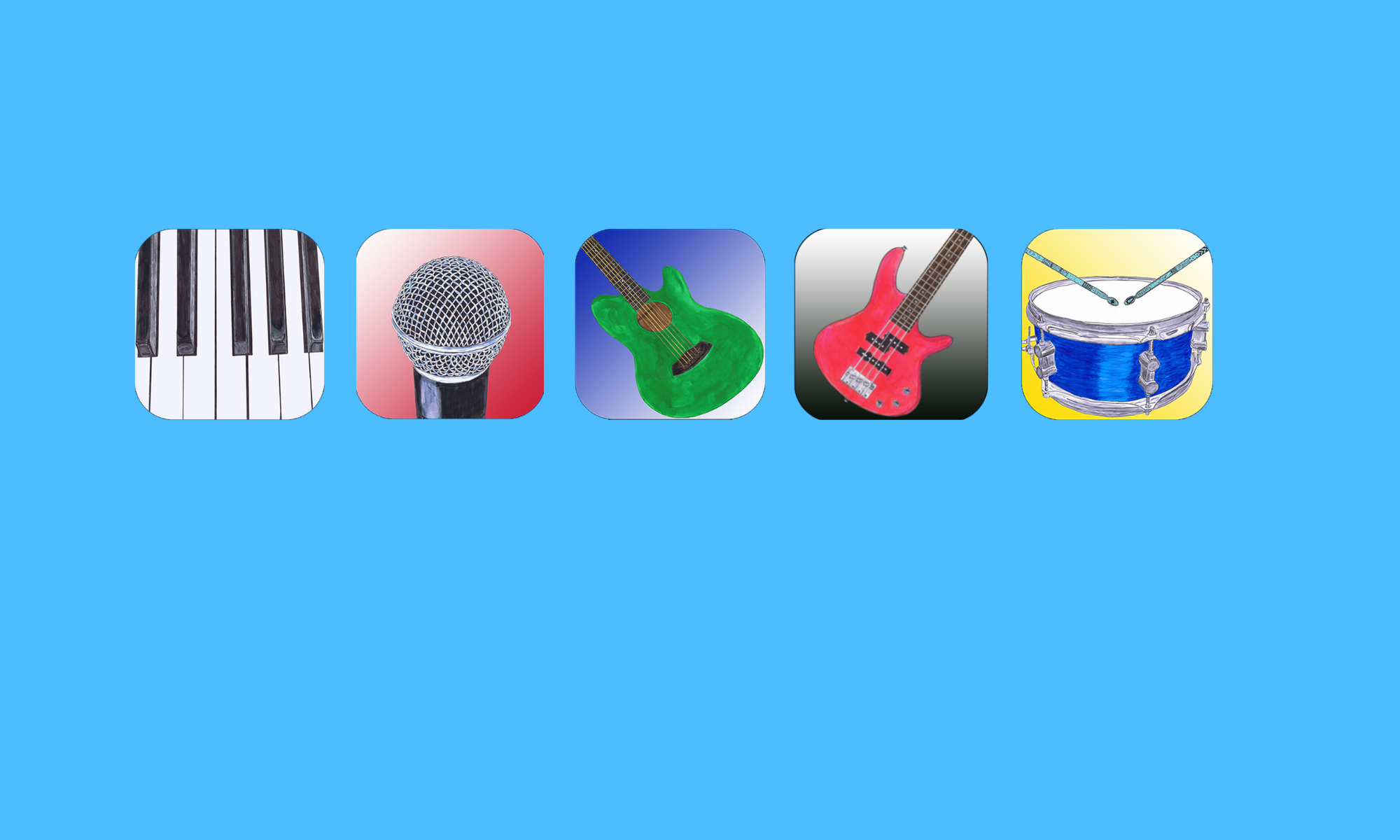In order to benefit from the interaction with others you need to learn not only to listen but also how to convey your ideas so that someone else understands what you’re saying. Having the ability to communicate your ideas and feelings to others is a valuable skill that can be applied throughout your life. In music we learn to do this by learning to speak through the language of music. This means learning to read music and understand musical terms and theory. There tends to be a knee jerk reaction to learning theory. There is the misconception that you should just “feel” music and that learning theory takes away from this. As someone who relied on a good ear and natural intuition for a long time, I can tell you that when I learned theory it was like an epiphany. I was finally fitting in some of the missing pieces of a puzzle that I’d already been working on.
Theory doesn’t have worth if you can’t put it together with what you sense about music. Theory is really about taking a piece of music apart to see why it works. Any mechanic can tell you that you can’t expect to build or fix a car if you’re not willing to take things apart. Music theory is often presented as this separate thing from playing. Imagine if you were given the plans to building a car and you were studying these plans without ever actually tinkering with a car. Information is meaningless unless you can use it and understand why there is a value to knowing it. Understanding theory improves your reading ability, allows you to listen to something and figure it out, improvise and to write music. It also allows you to see patterns and how everything is interconnected in music. Some people think that if you know how something works that it somehow takes away its magic. Like knowing how a magic trick works. I’ve never found this to be true with music, for me understanding why music works only deepens my love of it. It’s like glancing at a painting from a distance and liking it and then getting closer and realizing that there is all this elaborate detail that is beautiful by itself but even more interesting because it is all part of a bigger image.
Theory improves your reading because a big part of sight-reading well is about recognizing things you’ve seen before. Runs and arpeggios are primarily made up from scales and chords. Imagine seeing a string of 50 very fast notes that go all the way up the staff. Your brain really can’t work fast enough in real time to just read single notes but if you see that’s just a G major scale then it’s a piece of cake. Or maybe it’s made up of chords.(more than one note played at a time) If you have to figure out each note in the chord it’s tedious but if you immediately recognize it as a B chord you already know what the notes are. If you are listening to a song off of the radio and you want to figure out the chords you could keep trying different chords till you’re blue in the face but knowing theory automatically narrows down your choices. Figure out what scale the song is centered around and you already probably have it narrowed down to a few chords.
When I sit down to write music, theory is a tool that I use to move things along or get unstuck. For most creative people, the spark or inspiration is the easy part. It’s finishing the work, editing it and shaping it into a solid work that’s the hard part. Knowing theory can give you some obvious things to try when you’re stuck or help you figure out why something isn’t working. I think that it actually keeps my creative flow from getting interrupted. When I wrote music before I knew any theory I could get stuck trying to figure out how to play what I heard in my head or trying to find a chord that would work with my melody note or trying to come up with a chord that sounded a certain way. You can easily lose your inspiration with these distractions and end up frustrated and stalled.
Improvising is really just writing on the spot to an existing framework of chords and time. You can’t wait to see if your idea is going to work. You have to be thinking ahead because there are no do-overs in soloing. You have to know how many beats you have and what notes are in the chord or scale. At the very least you want to know what notes are going to sound really bad. That’s why those are called the ‘avoid’ notes.

